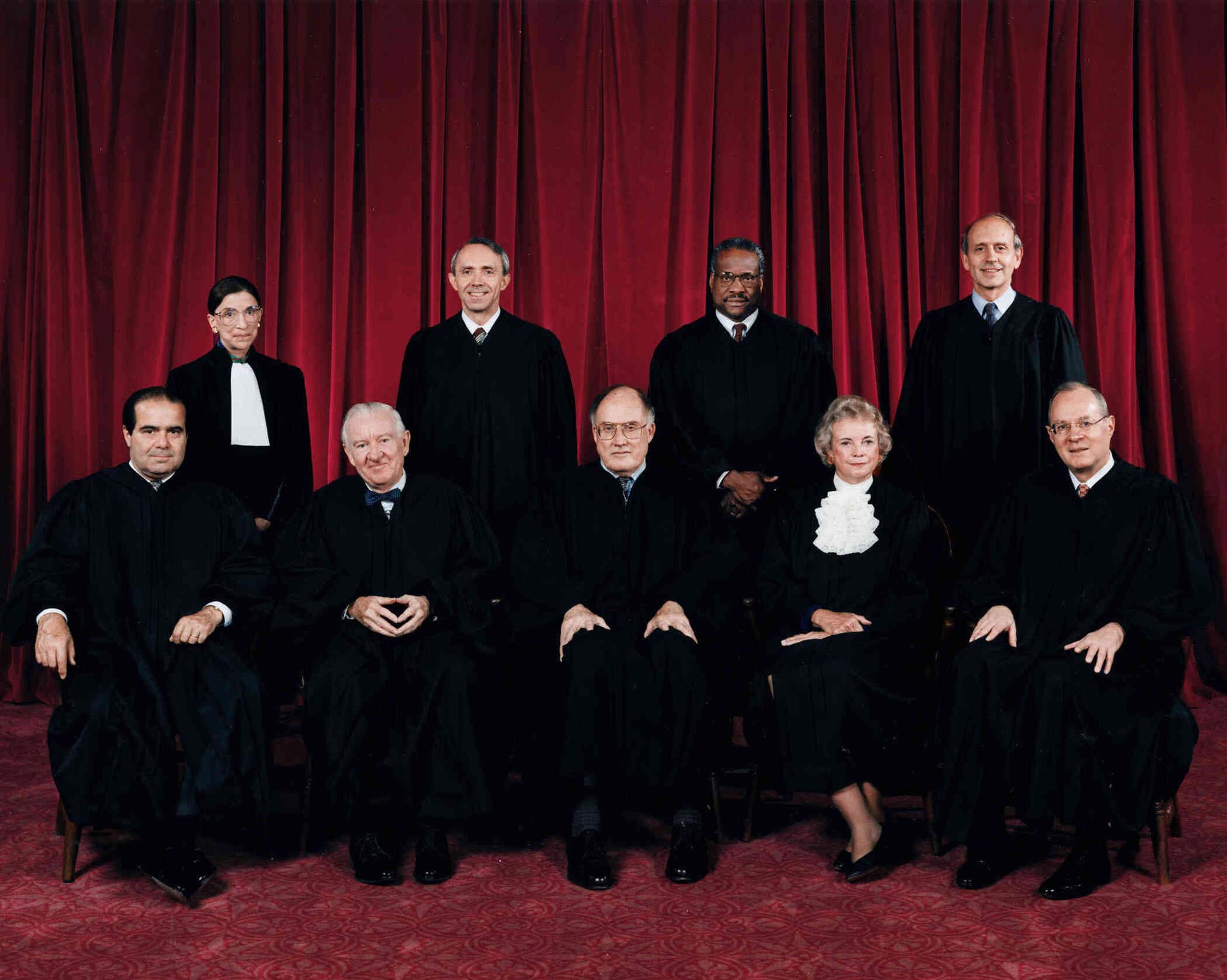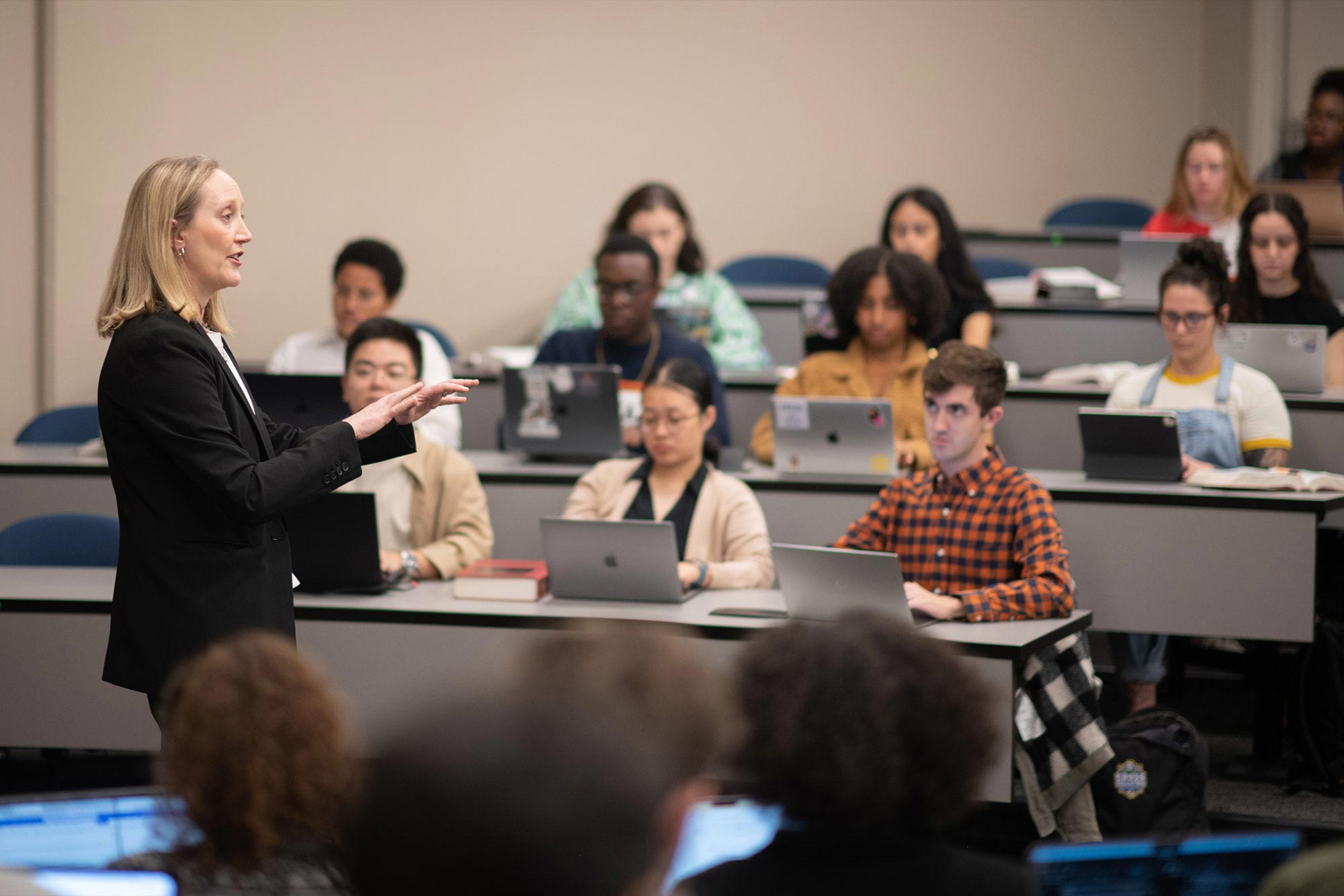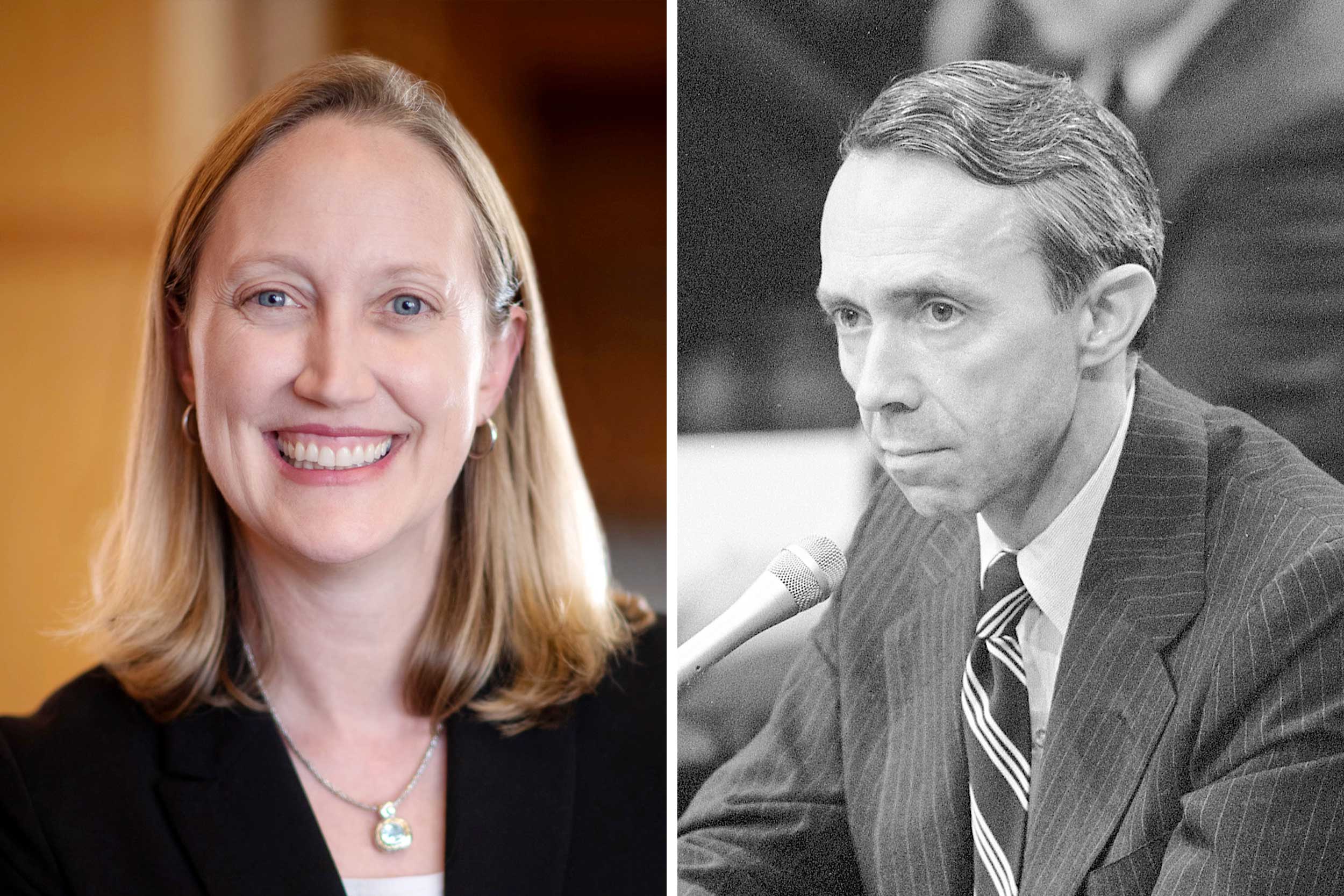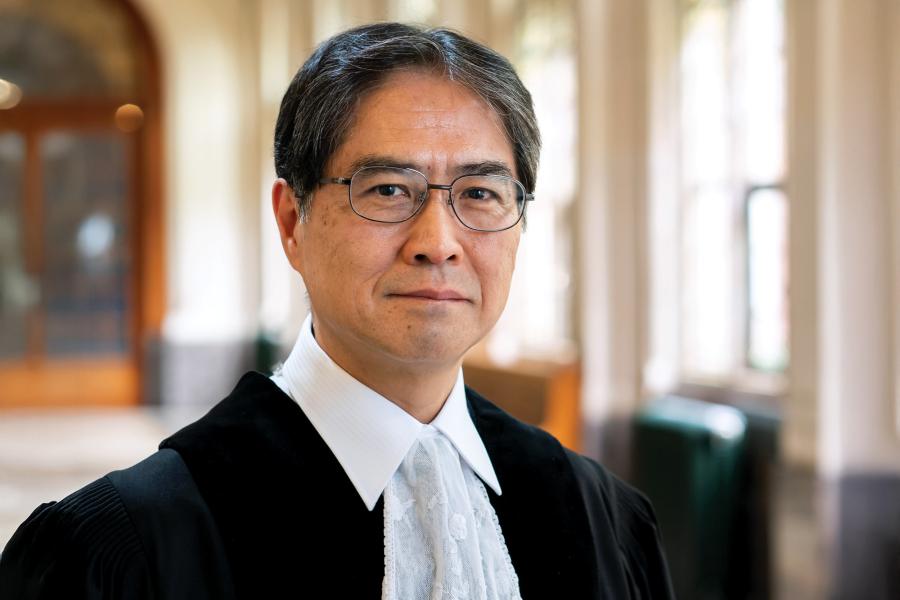When University of Virginia School of Law Dean Leslie Kendrick reflects on the life and legacy of U.S. Supreme Court Justice David Souter, what first comes to mind is not one of the many pivotal legal rulings he helped shape.
Rather, it’s the moments she, a 2006 Law School graduate, shared serving in a 2007-08 clerkship with the former justice, who died Thursday at 85. Moments like when Souter and his clerks were invited to join a group of military officers he had befriended on a trip to Gettysburg for a history lesson on the critical Civil War battle.
“Being on that ground with them and the justice was a once-in-a-lifetime experience,” Kendrick said.
The memory embodies what it was like to work alongside Souter, she explained.
“Being his clerk felt a bit like being part of a secret society, because you had the chance to get to know a wonderful person whom few others knew,” Kendrick said. “The person we knew was a modest and humane boss, who knew the names of everyone in the Supreme Court building and whose words were always patient, kind and sincere.”

Souter stands to the right of U.S. Supreme Court Justice Ruth Bader Ginsburg in this 1994 photo. (U.S. Supreme Court photo)
Souter was nominated to the bench by President George H.W. Bush and confirmed by the Senate in October 1990, following a brief stint as a judge on the First U.S. Circuit Court of Appeals. His appointment to the highest court in the land was the culmination of a legal career defined by public service, which had also included time as New Hampshire’s attorney general and as a justice on that state’s Supreme Court.
He served on the U.S. Supreme Court until his retirement in 2009 at the age of only 69, a relatively youthful age by the standards of many justices who, with lifetime appointments, often serve well into their 80s.
Souter, though, was never someone who needed the attention or influence that came with serving on the nation’s highest court, Kendrick said.
“Justice Souter was the most reluctant public figure imaginable. He did not want the spotlight, and he was never looking for a platform. I never saw him give a thought to trying to get himself across to the public or cultivate a particular image,” she said.

Kendrick is the 13th dean of the School of Law and an expert in torts and freedom of speech. (Photo by Jesús Pino.)
As a jurist, Souter had a sophisticated view of constitutional interpretation, Kendrick said. But most of all, he was a classic common-law judge, focused on deciding actual disputes between actual parties with fairness, consistency and common sense.
“He cared about the facts, and he always sought to understand and apply the law in a principled way. He cared more about getting a case right by his own lights than coming out on the right side according to someone else’s,” she said.
Kendrick was not the only UVA Law alum to benefit from Souter’s mentorship. She credits Allison Orr Larsen – Law School Class of 2004, and now a professor at William & Mary Law School – for helping pave the way for her clerkship: “Her word, and our shared UVA Law background, carried a great deal of weight with him.”
Like Kendrick, Larsen recalled the personal touch and humility Souter brought to the Supreme Court’s hallowed halls.
“On my first day working at the court while filling out paperwork and getting my ID made, every Supreme Court employee I encountered – the guards, the librarians, the custodial staff – told me, ‘Justice Souter is the best,’” Larsen said.
She added: “They weren’t referring to his tremendous legal mind – although that would be true. They were referencing the fact that he knew all their names and their children’s names and any recent running injuries.”
While the famously private Souter was known for eschewing the Washington social scene, Larsen saw firsthand the small moments he shared with those around him while deciding some of the most important legal issues of the day.
“Justice Souter had a superhuman heart. And although he was private, he connected easily to everyone around him,” Larsen said.
In clerking for Souter, Kendrick said she and others received more than just a front-row seat to a world-class legal mind: “We were getting a master class in professional and personal integrity.”
“Now, we can only try to live up to his example,” she said.



